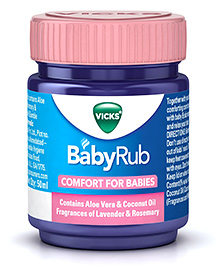5 Common Side-Effects of Vaccination in Babies

As a parent, you would want to do everything to make sure your little one is safe and healthy. An essential step in caring for your baby is getting him vaccinated. You will be required to give quite a few shots or vaccinations to your baby in his first year after birth to protect him from various fatal illnesses and infections. However, your baby’s woes may not come to an end with the shot, and sometimes it may cause side effects. Though most of the vaccination side effects are normal and may not cause many problems to your child, sometimes more severe side effects can arise, causing great discomfort to your baby. In the following article, we shall discuss everything about the side effects of vaccination on babies.
What Causes Vaccination Side Effects in Babies?
It is very normal for parents to worry about vaccination’s side effects on babies. However, it is equally crucial for the parents to understand that there is no need to panic because just the way certain medicines may cause mild to severe side effects in babies, the same applies to vaccinations as well (1). Mostly, the side effects are mild and subside within a few days without any major medical intervention (2).
Babies fall sick very often, and sometimes, they may come up with something at the same time when they get a shot. Under such situations, it is often misunderstood as a side effect of the vaccination. Similarly, some vaccinations coincide with the time when most developmental delays are reported (such as MMR, which is administered at 12-15 months), so it doesn’t really mean that a certain vaccination may be causing developmental delays in babies.
Some babies may develop side effects due to a particular vaccination, but these are very mild and can be easily cured. Though sometimes serious side effects are also reported, like anaphylaxis which can happen within minutes of administration, these are a very rare occurrence (3).
Common Side Effects of a Vaccination in Infants
Here are some common side effects or adverse effects of vaccines in babies as per the U.S. Department of Health and Human Services (4):
1. Fever
Fever is one of the most common side effects of certain vaccinations in babies. Your baby may have a fever for 24 hours to 48 hours. Paracetamol can be given to reduce fever.
2. Redness
You may observe redness at the site of injection. This usually subsides within 3 to 4 days. However, warm compressions may help ease the redness.
3. Formation of a Lump
Sometimes, a lump may form under the skin at the site of injection. This may happen due to bleeding under the skin. This may take a few days to subside.
4. Sleep
Your baby may feel extra sleepy or groggy after taking a shot. This may happen for a day or two. However, there is no need to feel worried if your baby is waking up regularly for feeds.
5. Irritability
The pain and discomfort from the vaccine may make your baby irritable and cranky. Do not worry, as this will be over within a day or two.
These are some of the common side effects that you may notice after your baby gets a shot. However, if any of the given side effects get serious or your baby seems to be very uncomfortable and restless, you should seek medical help.
Can Vaccination Causes Autism in Baby?
No, there is no scientific study that has found any link between vaccinations and developmental or behavioural disorders like autism (5). A 2013 CDC study added to the research showing that vaccines do not cause autism disorder (6).
Twelve years after releasing a study published in 1998 that made many parents worried about giving their kids the MMR vaccine due to a suggested connection with autism, The Lancet journal took back the paper stating the findings as incorrect (7).
What Should You Do if Your Baby Has Side Effects?
As a parent, it is very difficult to see your baby in any kind of pain and discomfort. The first thing that you should do is calm your baby. Your baby may be in pain, and thus, applying warm compressions at the site of injection may help soothe the redness and swelling. You can even ask your doctor to administer any anti-inflammatory medicine to your baby to ease the pain and discomfort (8). Though there are many over-the-counter medicines available in the market, and it is best to seek your doctor’s advice on the same. Exercise caution while lifting your baby and refrain from touching the site where the vaccine has been given. Sometimes moving the arm or leg where the vaccine had been administered helps in relieving the pain.
How Long Does a Baby’s Vaccination Side Effects Last?
Some babies may experience side effects after getting a shot. These side effects of vaccines in babies are usually easily treatable and may subside within 48 to 72 hours after your baby gets the shot (9). There are some vaccines that may show side effects after 5 to 12 days of administering the vaccine (such as the MMR vaccine). In most cases, the side effects may subside within 2-3 days; however, if you notice any side effects after this period, it is recommended that you seek medical help for the same.
BCG vaccine effects on babies are a bit different as some side effects, like small red areas at the site of injection, may appear 10-14 days after the injection and start decreasing slowly (10).
When to Call a Doctor?
Seldom do vaccinations cause any fatal complications in babies. However, if you notice any of the following symptoms or after-effects of vaccinations in babies, you should call a doctor (11):
- If your baby is crying non-stop for more than three hours (make sure your baby is not crying because of colic).
- If your baby has a high fever, which is 104 degrees or more.
- If you notice that your baby is extremely lethargic, unresponsive, or sleepy.
- If your baby has convulsions or seizures (these may result from a high fever).
- In case you notice any kind of behavioural change in your baby that does not appear to be normal to you.
- In case you notice seizures that may become severe and persistent.
- In case your baby develops an allergic reaction, such as rash, anaphylaxis (although rare), swelling, breathing difficulties, etc (12).
FAQs
1. What are vaccines made of?
Vaccines are made up of either Weakened live viruses (like vaccines for measles, rubella, mumps, rotavirus, chickenpox), Inactivated (or killed) viruses (like vaccines for hepatitis A, polio, rabies, and influenza), partial viruses (like vaccines for hepatitis B and HPV vaccine), and partial bacteria (like vaccines for meningococcal, Hib, diphtheria, pneumococcal, whooping cough, and tetanus) (13).
2. What are the rare or uncommon vaccination side effects?
Some uncommon or rare side effects of vaccines in babies include anaphylaxis and febrile seizure usually lasts one or 2 minutes or bowel blockage (8).
3. Can painless vaccinations cause side effects?
The side effects of painless vaccination are similar to much less than injectable vaccines.
4. What are the side effects of influenza vaccine?
The side effects of flu vaccine in babies include redness or swelling at the injection site. Some babies may develop a mild fever, which will diminish within one to two days (14).
As soon as you notice any vaccination side effects, you should report it to your baby’s doctor. Timely medical intervention can save your baby from any kind of serious medical condition. It is also possible that the side effects of vaccines on babies are not because of the vaccine but some other underlying medical condition that your baby may be suffering from. Whatever the case, it is recommended that you get in touch with your baby’s doctor whenever you experience anything unusual after your baby gets a shot.
Infographic: 5 Common Side Effects of a Vaccination in Babies
References/Resources:
1. Vaccines for Children – A Guide for Parents and Caregivers; FDA; https://www.fda.gov/vaccines-blood-biologics/consumers-biologics/vaccines-children-guide-parents-and-caregivers
2. Possible Side effects from Vaccines; CDC; https://www.cdc.gov/vaccines/vac-gen/side-effects.htm
3. Immunisation for babies up to one year old; Nidirect; https://www.nidirect.gov.uk/articles/immunisation-babies-one-year-old
4. Vaccine Side Effects; U.S. Department of Health and Human Services; https://www.hhs.gov/immunization/basics/safety/side-effects/index.html
5. Autism and Vaccines; CDC; https://www.cdc.gov/vaccinesafety/concerns/autism.html
6. DeStefano. F, Price. C. S, et al.; Increasing exposure to antibody-stimulating proteins and polysaccharides in vaccines is not associated with risk of autism; J Pediatr.; PubMed; https://pubmed.ncbi.nlm.nih.gov/23545349/; August 2013
7. Eggertson. L; Lancet retracts 12-year-old article linking autism to MMR vaccines; CMAJ.; PubMed Central; https://www.ncbi.nlm.nih.gov/pmc/articles/PMC2831678/; March 2010
8. Immunisation – side effects; BetterHealth Channel; https://www.betterhealth.vic.gov.au/health/healthyliving/immunisation-side-effects
9. Why vaccination is important and the safest way to protect yourself; NHS; https://www.nhs.uk/vaccinations/why-vaccination-is-important-and-the-safest-way-to-protect-yourself/
10. Bacillus Calmette-Guerin (BCG) Vaccine; MedlinePlus; https://medlineplus.gov/druginfo/meds/a682809.html
11. Immunization Reactions; Seattle Children’s; https://www.seattlechildrens.org/conditions/a-z/immunization-reactions/
12. McNeil. M. M, Weintraub. E.. S, et al.; Risk of anaphylaxis after vaccination in children and adults; The Journal of Allergy and Clinical Immunology; https://www.jacionline.org/article/S0091-6749(15)01160-4/fulltext; March 2016
13. Vaccine Ingredients: Frequently Asked Questions; American Academy of Pediatrics; https://www.healthychildren.org/English/safety-prevention/immunizations/Pages/Vaccine-Ingredients-Frequently-Asked-Questions.aspx
14. Influenza (flu) vaccine; The Royal Children’s Hospital Melbourne; https://www.rch.org.au/kidsinfo/fact_sheets/Influenza_(flu)_vaccine/
Also Read:
Fever After Vaccination in Babies
Pain After Vaccination in Infants
Pneumococcal Vaccine for Babies
Painless Vaccination for Infants
Was This Article Helpful?
Parenting is a huge responsibility, for you as a caregiver, but also for us as a parenting content platform. We understand that and take our responsibility of creating credible content seriously. FirstCry Parenting articles are written and published only after extensive research using factually sound references to deliver quality content that is accurate, validated by experts, and completely reliable. To understand how we go about creating content that is credible, read our editorial policy here.






















.svg)


















